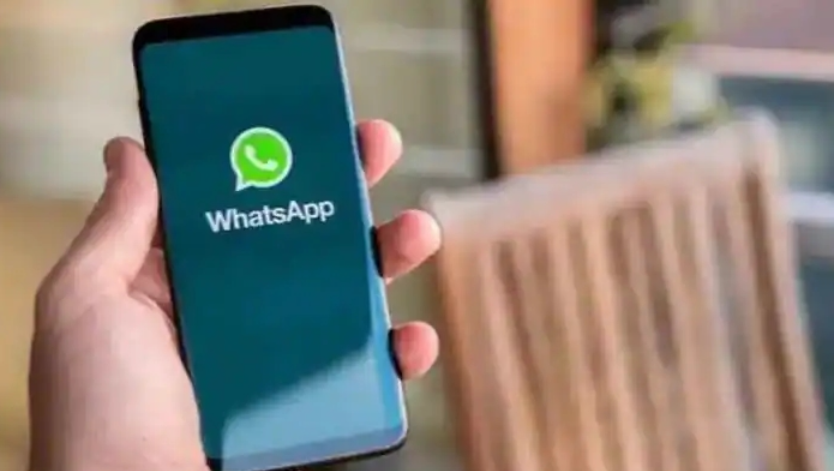What is the Difference Between WhatsApp Web and WhatsApp Desktop App?

In a world where everything is connected, the Android Messenger app WhatsApp has become more than just a mobile messaging app. It has become one of the basic tools for personal communication, but it’s also a powerful tool for work collaboration. And to put it in perspective, Meta (formerly Facebook) has made two apps with very powerful features: WhatsApp Web and WhatsApp Desktop. While they both work on the same basic idea: sharing your mobile WhatsApp experience on a computer, they aren’t exactly alike. It’s important to grasp both what they have in common, so you can select the one that is best for you and maximize your productivity.
Understanding the Core Linking Technology
Before we dive into the differences (you can read more about them here) they need to be dissected and understood on a high level. It’s not that the WhatsApp Web or the WhatsApp Desktop are separate applications, the way it is built is that they are both “linked clients” (they are a mirror / extension to your primary WhatsApp account on your smartphone) and therefore you need your phone on to be turned on and connected to the internet to allow either application to send and receive messages. This means that end-to-end encryption has been maintained across all your devices, as the encryption keys are still on your primary phone.
Defining WhatsApp Web: The Browser-Based Portal
- WhatsApp Web is a web client that runs on an internet browser of your choice (Google Chrome, Mozilla Firefox, Microsoft Edge or Safari). Whatsapp Web allows you to connect your browser and your phone at the same time. To use this feature you just go to the web. whatsapp. com address for your computer, open WhatsApp on your phone, go to Linked Devices and scan the unique QR code that appears on the screen of your computer. This adds all of your messages and contacts for this day together with newer versions of them (you can use multiple devices at once).
- One of the biggest advantages of using WhatsApp Web is that it is universal in its accessibility. You don’t need to download any software, so it’s an enormous convenience to use on public computers, library computers, or any work PC you have access to (where you may not have any installation privileges). If you log off using the WhatsApp Web interface or your phone’s Linked Devices menu, your session remains active until you explicitly log out.
- Exploring the WhatsApp Desktop App: When we think of WhatsApp Desktop, the app is a standalone application you download and install directly into your computer’s operating system (Windows or macOS). You can download it from WhatsApp’s official website as well as app stores like the Microsoft store and the Mac App Store. The core is very similar to WhatsApp Web— open the app, camera the QR code with your phone and the link is established.
The primary difference between WhatsApp Desktop and the regular version you access in your browser is it runs in its own window (native) instead of from within a tab in your browser. This kind of naturally has a litany of advantages to this approach (mainly speed in general, system-level integration[aka native desktop notifications], and global shortcuts which assist immensely in the area’s of navigation and messaging). It’s also in its own dedicated window, separate from your browser window, something that a lot of people find less distracting.
See also: Seal APP – Download Seal APP Official For Android 2025
Head-to-Head: Key Differences Compared
Many practical things to consider when making your choice between these two platforms
- Performance and speed You’ll typically find that the WhatsApp Desktop app offers higher performance than your browser (it may be running dozens of other tabs, extensions and so on. ) Sending files, loading media and using chats in general will feel faster and more responsive in the native app.
- Multitasking and Notifications: The desktop application has more sophisticated notifications. They look like system alerts which can be responded to even if the app window is minimized. With Masuk WhatsApp Web
you might miss notifications if you close the browser tab you are on or switch to a different one. Unless you turn your browser to run in the background.
Offline Functionality: Most people think that both the platforms work offline. But the desktop app has a little edge over the other because you can’t send or receive new messages when offline, but the desktop app can maybe allow you to check some of your recent message history from outside your phone (which have already been synced). Whatsapp Web will only give you a connection error when you lose your Internet connection.
Usage and Accessibility: The WhatsApp Web wins as far as simply accessibility/accessibility are concerned: If you’re using a different computer you can get up and running straightaway without an installation; the desktop app requires one-time download but is always available on your specific computer by clicking one button (making it perfect for you primary work/home computer).
Security and Privacy: An Equal Playing Field
From a security point of view, there is no winner. Both WhatsApp网页版 and the WhatsApp Desktop app use the same end-to-end encryption that keeps your messages on your phone safe. Your data is never actually stored on your computer; you only see information that was synced to the app on your phone. The main security practice is to remember to log out of those shared computers on your own — this can be done remotely from the Linked Devices menu on your phone.
Conclusion: Which One is Right for You?
The decision to use WhatsApp Web app or WhatsApp Desktop app Ultimately depends on your particular needs and habits. Choose the WhatsApp Desktop App if: You use WhatsApp on your computer daily for extended periods, you value performance, keyboard shortcuts, and reliable native notifications, and you are working on your personal or primary computer. For most power users/professionals the WhatsApp Desktop app is going to be the better option because it offers more performance and a dedicated user interface. But with the presence of WhatsApp Web this extra flexibility is very crucial in order to never lose access to the conversations you’re chatting with whether you’re using your desktop or someone else’s machine. Both of these are great examples of how a mobile first platform is able to successfully adapt to a desktop environment.






